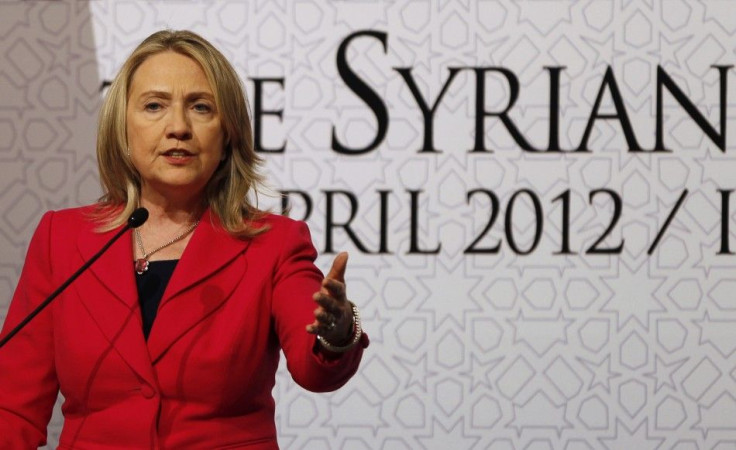Syria Aid: U.S. Pledges Assistance, Stops Short of Military Solution

As the international community weighs options for halting the bloodshed in Syria, members of Congress and the Obama administration have emphasized alternatives to an outright military intervention.
At a weekend summit in Turkey devoted to Syria, U.S. Secretary of State Hillary Clinton joined other countries in promising support to rebel groups in Syria and calling for Syrian president Bashar al-Assad to step aside. But she stopped short of pledging to arm the dissident groups, deferring to other countries that have agreed to pay opposition forces.
A group of nations will be providing assistance for the fighters, and that is a decision that is being welcomed by the Syrian National Council, Clinton said, referring to a leading Syrian opposition group.
Clinton pledged an additional $12 million in humanitarian assistance, including money for satellite communications equipment. That brings America's total aid commitment to about $25 million.
Diplomatic efforts to contain the crisis have yielded no results so far. Russia and China wielded their U.N. Security Council vetoes in February to reject a resolution, modeled on an Arab League plan, that would have called for Assad to relinquish power. While Russia had shown signs of diminishing its support for Assad, Russian foreign minister Sergei Lavrov more recently refused to impose a deadline for the Syrian president to accept a peace plan.
Clinton said that any timeline for Assad to back the plan, which was formulated by U.N. Special Envoy Kofi Annan, would have to be self-enforced, but she acknowledged that the urgency of the situation demanded action.
There has to be a timeline, Clinton told ABC. It can't go on indefinitely.
A group of U.S. lawmakers led by Republican Sen. John McCain has urged the administration to act more aggressively on Syria. McCain has pushed for air strikes on the Syrian army, and last week he joined other senators in sponsoring a resolution that called for the establishment of civilian safe zones and supported arming the rebels.
Other members of Congress have been more wary. The leading Democrat and Republican on the House Intelligence Committee both signaled on Sunday their opposition to arming the Syrian rebels, citing the potential long-term consequences.
I think we both agree that's probably a bad idea, Republican Rep. Mike Rogers said. Mainly because we just don't know who they are.
© Copyright IBTimes 2024. All rights reserved.





















